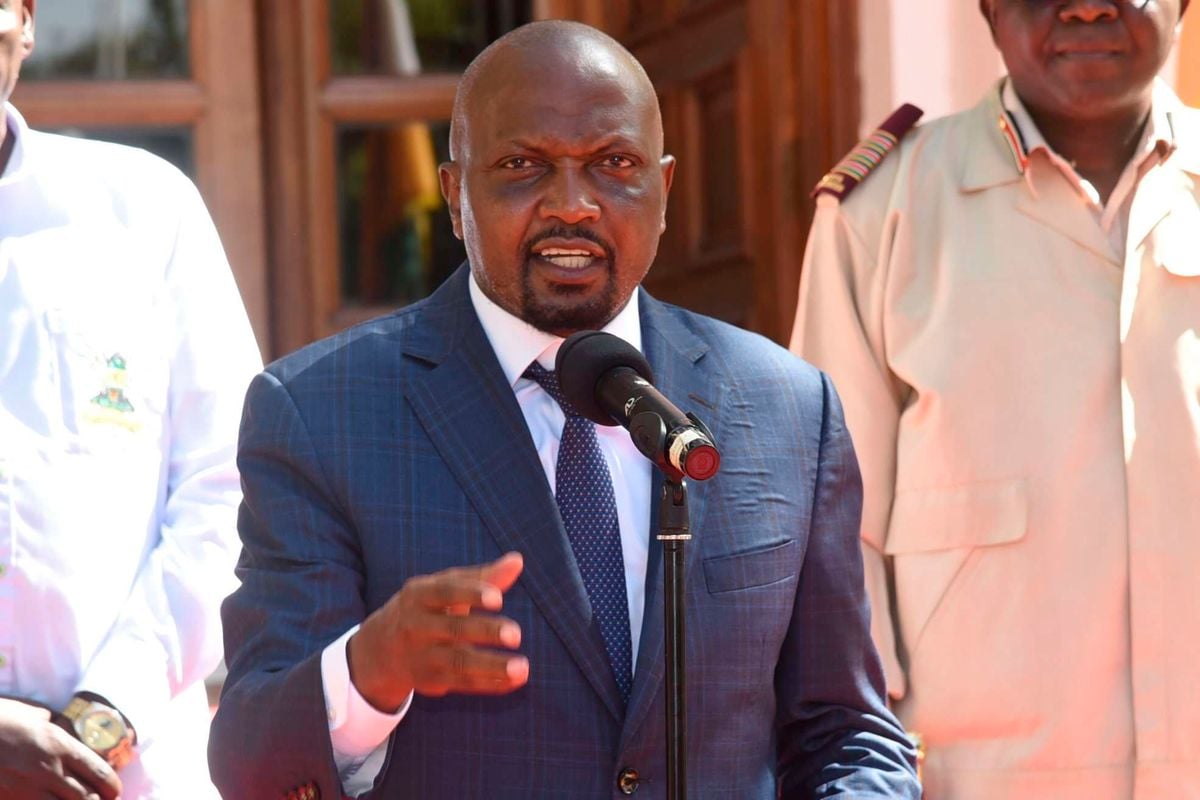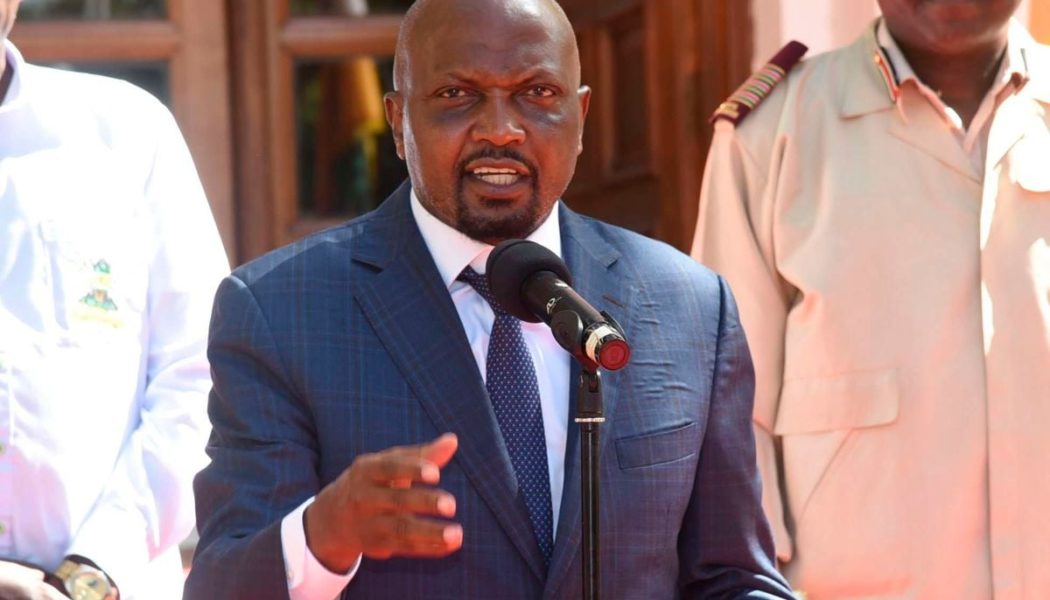
Mobile money paybill and till number accounts will be converted into electronic tax registers (ETRs) from the end of December to weed out tax evaders and boost revenue by billions of shillings, a senior economic adviser to President William Ruto has said.
Moses Kuria, a former Cabinet Secretary, said there were plans to declare all paybills from December 25 as virtual electronic tax receipts in fresh efforts to widen the tax base.
Mr Kuria was recently tapped as a senior member of the Council of Economic Advisors to the President.
His pronouncement indicates that transactions on mobile money payments of traders will be nearly similar to an electronic tax invoice management system (eTIMS) receipt and a basis for tax computation.
The revelation comes as the State races to have the Kenya Revenue Authority (KRA) integrate its system with those of mobile phone operators’ financial platforms to catch those who do not pay tax on their incomes.
Mr Kuria pointed at the disparity between the estimated 200,000 firms that have ETRs and the two million that use paybills as their digital payment points across the country.
“We’ve agreed with the Commissioner-General that come Christmas 2024, all paybills will also be virtual ETRs for the purposes of KRA [revenue collection]. I know there is going to be some noise, but I also want you to tell me where we agree that someone will not pay taxes? Maybe I missed that point,” said Mr Kuria at the KRA tax summit yesterday.
“Today at KRA, the number of people who have devices for VAT, the ETR devices, is only 200,000. Combined, all our telcos and the banks doing mobile payments have what we call digital touch points for payments- two million of them, that’s 10 times the number of ETRs at KRA and speaks to the huge opportunity we have in digitising our revenue framework,” he added.
Mr Kuria did not give more details on the plan, but President Ruto has previously said the tens of millions of mobile money accounts in Kenya offered a chance to boost revenue.
As a start, this will target firms that generate over Sh5 million in annual sales, a pointer that it’s targeting traders in the informal sector who are outside the ambit of the KRA.
The ETR is a cash register with fiscal memory that keeps a record of all transactions for purposes of the trader accounting for VAT charged at the time of making a sale—which is monitored real time by the taxman.
The government has raised concerns about the low uptake of physical ETRs under which VAT-registered taxpayers were required to purchase for the taxman to track payment of taxes from sales.
Any person or business supplying or expecting to supply taxable goods or services with a value of Sh5 million or more in a year is required to register for VAT.
Every VAT-registered taxpayer is also required to be listed under the eTIMS.
The Treasury is walking a financing tightrope after deadly protests forced the Ruto administration to abandon tax measures that would have collected Sh346 billion this year.
The International Monetary Fund (IMF) has delayed funding that was expected to be disbursed this month after it failed to reach a deal with Kenya on future revenue plans in the aftermath of withdrawal of the Finance Bill.
Safaricom is the leading mobile operator in Kenya, with most people using its M-Pesa and other services to transfer cash, save, borrow and make payments for goods and services.
The telecoms operator says it had 633,010 active merchants on its Lipa na M-Pesa and another 632,680 on Pochi la Biashara tills at the end of March. Apart from going after mobile phone money accounts, the authorities will also seek to raise more consumption taxes and ensure that property owners are paying their fair share, the Treasury said earlier.
To shore up revenue, President Ruto’s administration has deepened its crackdown on tax cheats.
The KRA has deployed hundreds of spies to conduct a series of background checks and lifestyle audits in fresh efforts to raise revenue and cut reliance on borrowing.
Now, the State wants to tap into the transaction of over 30 million registered customers of Safaricom’s M-Pesa and Airtel Money transacting billions of shillings daily.
The KRA’s enforcement unit has in recent years enhanced use of various databases to pursue suspected tax cheats, including bank statements, import records, motor vehicle registration details, Kenya Power records, water bills and data from the Kenya Civil Aviation Authority (KCCA), which reveals individuals who own assets such as aircraft.
Car registration details are also being used to smoke out individuals who are driving high-end vehicles but have little to show in terms of taxes remitted.
Kenya Power meter registrations are also helping the taxman to identify landlords, some of whom have been slapped with huge tax demands.
The agency, which has perennially fallen short of ambitious revenue goals set by the Treasury, traditionally relied on random audits to catch cheats.









